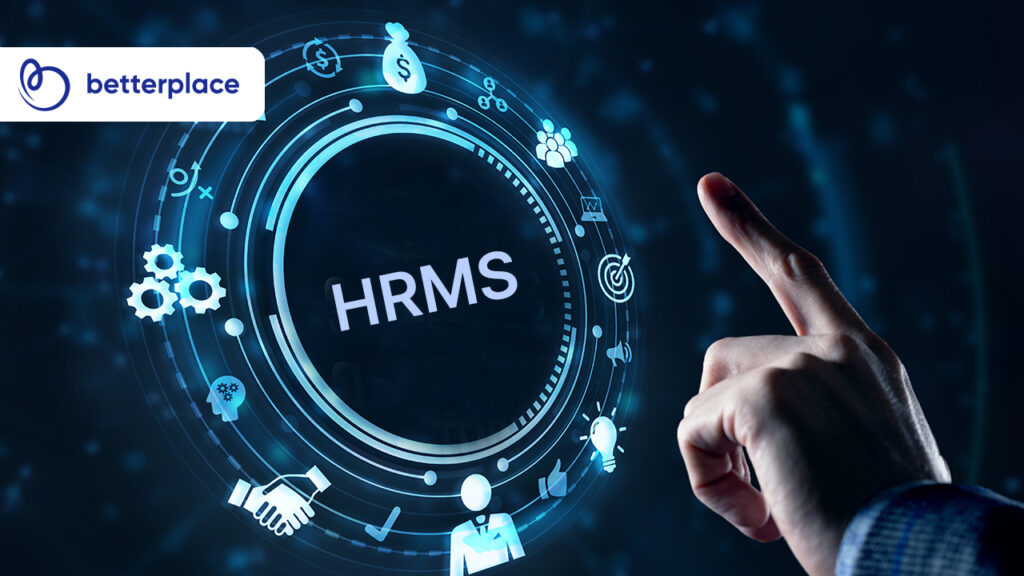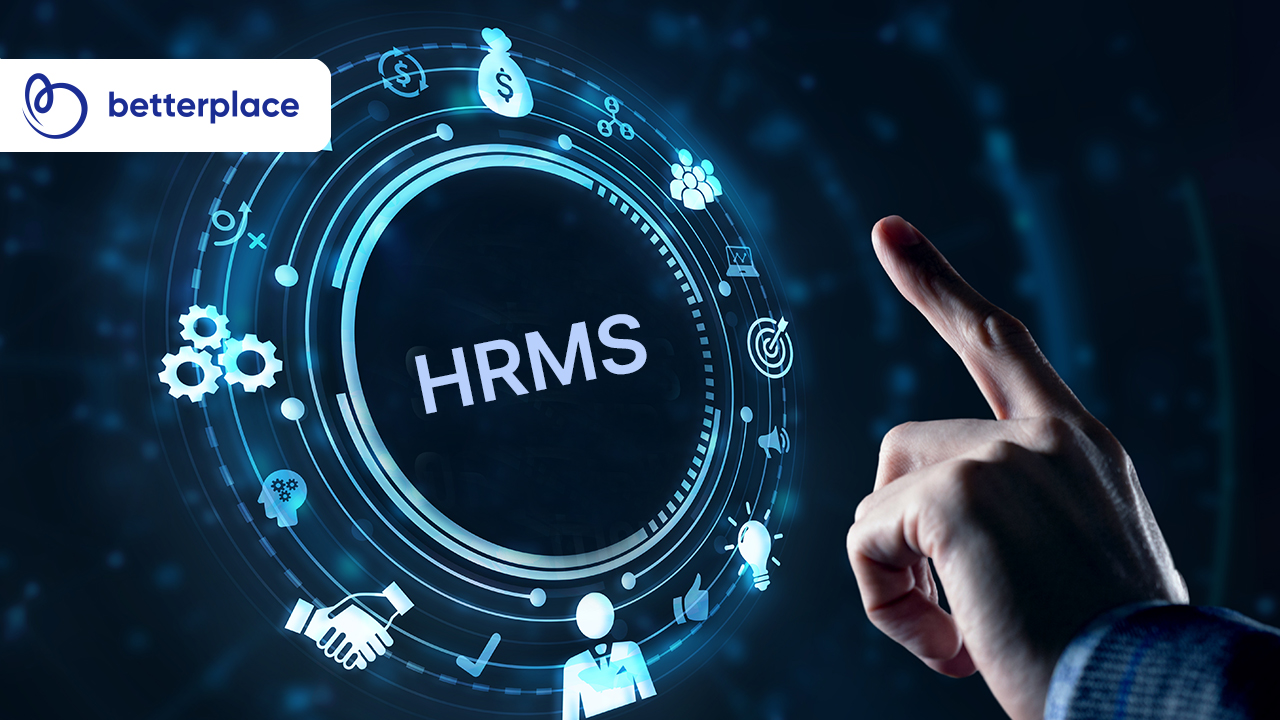
Streamline Your Workforce: The Power of an Online HR Management System
In today’s fast-paced business environment, efficiency and accuracy are paramount. Businesses are constantly seeking innovative solutions to manage their workforce effectively. One such solution that has gained significant traction is the online HR management system. This comprehensive software solution is transforming the way organizations handle human resources, from recruitment to retirement, and everything in between.
An online HR management system, often referred to as an HRMS or HRIS, is a web-based platform designed to centralize and automate various HR functions. It provides a single source of truth for employee data, streamlining processes, improving compliance, and empowering both HR professionals and employees. This article will delve into the benefits, features, and considerations of implementing an online HR management system within your organization.
What is an Online HR Management System?
An online HR management system is a software solution that helps businesses manage their human resources electronically. It replaces traditional paper-based processes with a centralized, digital platform. This system typically encompasses a wide range of functionalities, including:
- Recruitment and Onboarding: Managing job postings, applicant tracking, and new hire onboarding.
- Employee Data Management: Storing and organizing employee information, such as contact details, job history, and performance reviews.
- Payroll Processing: Automating payroll calculations, tax deductions, and direct deposit payments.
- Benefits Administration: Managing employee benefits programs, such as health insurance, retirement plans, and paid time off.
- Time and Attendance Tracking: Monitoring employee work hours, attendance, and leave requests.
- Performance Management: Facilitating performance reviews, goal setting, and employee development.
- Learning and Development: Providing access to online training courses and tracking employee progress.
- Compliance Management: Ensuring adherence to labor laws and regulations.
Benefits of Implementing an Online HR Management System
The advantages of adopting an online HR management system are numerous and can significantly impact an organization’s bottom line. Some key benefits include:
Increased Efficiency and Productivity
By automating HR processes, an online HR management system frees up HR professionals to focus on more strategic initiatives. Tasks such as payroll processing, benefits enrollment, and time tracking can be completed much faster and with fewer errors. This increased efficiency translates to higher productivity and cost savings.
Improved Accuracy and Compliance
Manual HR processes are prone to errors, which can lead to compliance issues and financial penalties. An online HR management system helps ensure accuracy by automating calculations, tracking changes in regulations, and providing alerts for potential compliance violations. This reduces the risk of costly mistakes and helps organizations stay compliant with labor laws.
Enhanced Employee Experience
An online HR management system empowers employees with self-service capabilities, allowing them to access their personal information, request time off, and enroll in benefits programs online. This improves the employee experience by providing greater transparency and control over their HR data. It also reduces the burden on HR staff, who can spend less time answering routine questions and more time addressing employee concerns.
Better Data-Driven Decision Making
An online HR management system provides valuable insights into workforce trends and performance. By analyzing employee data, HR professionals can identify areas for improvement, track key performance indicators (KPIs), and make data-driven decisions about talent management, compensation, and training. This helps organizations optimize their workforce and achieve their business goals. [See also: Employee Performance Management Software]
Cost Savings
While there is an initial investment required to implement an online HR management system, the long-term cost savings can be significant. By automating HR processes, reducing errors, and improving efficiency, organizations can save money on labor costs, administrative expenses, and compliance penalties. The reduction in paper usage also contributes to environmental sustainability efforts.
Key Features to Look for in an Online HR Management System
When selecting an online HR management system, it’s crucial to consider the specific needs of your organization. Some key features to look for include:
Comprehensive Functionality
The system should offer a wide range of functionalities to cover all aspects of HR management, from recruitment to retirement. It should be able to handle employee data management, payroll processing, benefits administration, time and attendance tracking, performance management, and learning and development.
User-Friendly Interface
The system should be easy to use for both HR professionals and employees. A user-friendly interface will encourage adoption and minimize training time. Look for a system with intuitive navigation, clear instructions, and helpful support resources. The online HR management system should be accessible on multiple devices, including desktops, laptops, tablets, and smartphones, to cater to the modern workforce.
Scalability
The system should be able to scale with your organization as it grows. It should be able to handle an increasing number of employees, transactions, and data without compromising performance. Choose a system that can adapt to your evolving needs and support your long-term growth strategy.
Integration Capabilities
The system should be able to integrate with other business systems, such as accounting software, CRM software, and project management tools. This will ensure seamless data flow and eliminate the need for manual data entry. Integration capabilities are crucial for creating a unified view of your business operations. A good online HR management system should offer robust API (Application Programming Interface) capabilities for integration.
Security and Compliance
The system should provide robust security measures to protect sensitive employee data. It should comply with relevant data privacy regulations, such as GDPR and CCPA. Look for a system with encryption, access controls, and regular security audits to ensure data protection. Data security is paramount when dealing with employee personal information.
Reporting and Analytics
The system should offer comprehensive reporting and analytics capabilities to track key HR metrics and identify areas for improvement. It should provide customizable reports, dashboards, and visualizations to help you make data-driven decisions. The ability to generate insightful reports is essential for effective HR management. [See also: HR Analytics: Measuring What Matters]
Considerations for Implementing an Online HR Management System
Implementing an online HR management system is a significant undertaking that requires careful planning and execution. Some key considerations include:
Defining Your Needs
Before selecting a system, take the time to define your organization’s specific needs and requirements. What are your biggest HR challenges? What processes do you want to automate? What features are most important to you? By clearly defining your needs, you can narrow down your options and choose a system that is the right fit for your organization.
Budget and Resources
Consider your budget and the resources you have available to implement and maintain the system. Factor in the cost of software licenses, implementation services, training, and ongoing support. Also, consider the time and effort required to migrate your data and train your employees on the new system. A phased implementation approach can often help manage costs and resources more effectively.
Vendor Selection
Choose a reputable vendor with a proven track record of providing reliable and effective online HR management systems. Research different vendors, read reviews, and ask for references. Consider the vendor’s customer support, training resources, and ongoing maintenance services. A strong vendor partnership is essential for a successful implementation.
Data Migration
Migrating your data from your existing system to the new system can be a complex and time-consuming process. Plan carefully for data migration, ensuring that your data is accurate, complete, and properly formatted. Consider using data migration tools or hiring a consultant to help with the process. Data integrity is crucial for the success of your new online HR management system.
Training and Support
Provide adequate training and support to your employees on how to use the new system. This will ensure that they are comfortable using the system and can take full advantage of its features. Offer a variety of training options, such as online tutorials, in-person workshops, and on-demand support. Ongoing support is essential for addressing employee questions and resolving any issues that may arise. The success of your online HR management system depends on employee adoption and utilization.
The Future of Online HR Management Systems
The field of online HR management systems is constantly evolving, with new technologies and features emerging all the time. Some trends to watch for include:
Artificial Intelligence (AI)
AI is being used to automate tasks such as recruitment, onboarding, and performance management. AI-powered chatbots can answer employee questions and provide personalized support. AI algorithms can also analyze employee data to identify potential risks and opportunities.
Cloud-Based Solutions
Cloud-based HR systems are becoming increasingly popular due to their scalability, flexibility, and cost-effectiveness. Cloud solutions allow organizations to access their HR data from anywhere, at any time. They also offer enhanced security and disaster recovery capabilities.
Mobile Accessibility
Mobile accessibility is becoming increasingly important as more employees work remotely and use mobile devices. HR systems are now being designed with mobile-first interfaces, allowing employees to access their HR data and perform tasks on the go.
Focus on Employee Experience
HR systems are increasingly focusing on improving the employee experience by providing personalized and engaging tools. These systems offer features such as employee self-service portals, mobile apps, and gamified learning experiences. The goal is to create a more positive and productive work environment.
Conclusion
An online HR management system is a powerful tool that can help organizations streamline their workforce, improve efficiency, and enhance the employee experience. By automating HR processes, providing valuable insights, and empowering employees, these systems can help organizations achieve their business goals. When selecting an online HR management system, it’s important to consider your organization’s specific needs, budget, and resources. With careful planning and execution, you can successfully implement an online HR management system and reap the many benefits it has to offer. The transition to an online HR management system is an investment in the future of your organization, enabling you to manage your most valuable asset – your people – more effectively and strategically.

